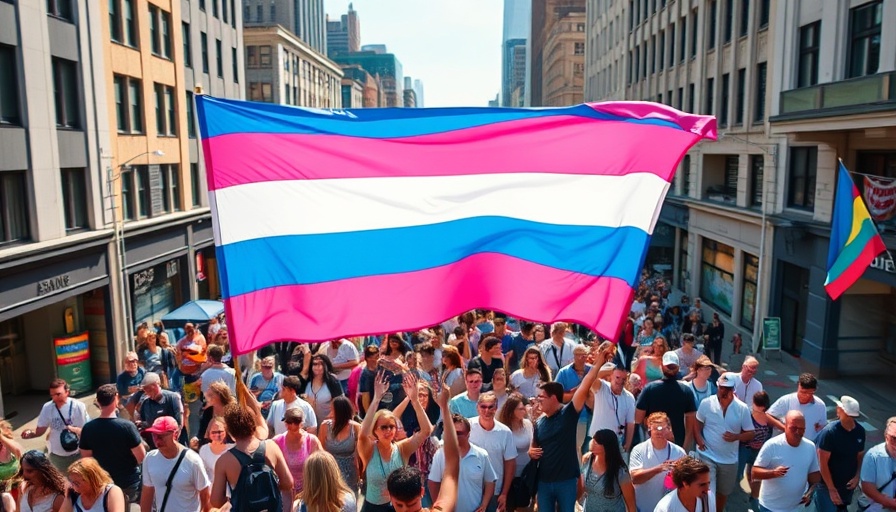
Understanding the Importance of Trans Advocacy
As the conversation around gender identity continues to evolve, the imperative for advocating for trans rights has become more urgent. Transgender and gender-nonconforming individuals face a barrage of legislative and social challenges that threaten their safety and dignity. According to Shane Diamond, director of communications and advocacy at GLAAD, recent attacks have been aimed at dehumanizing trans people and stripping away their hard-won rights. This advocacy isn't just about policy changes; it's about preserving the humanity and visibility of trans lives in society.
Recognizing Humanity: The First Step
The foundation of advocating for trans rights begins with recognizing the inherent humanity of all individuals, regardless of their gender identity. Tiommi Luckett, a senior national organizer for Positively Trans, emphasizes that acknowledging the shared human experience is crucial. This recognition shows that trans people are not asking for special rights—they simply want the same rights afforded to everyone else. In a world where trans joy often goes unseen, advocates must also highlight the multifaceted experiences and vibrancy of trans lives.
Getting Involved Locally Matters
While national organizations play a significant role in advocating for trans rights, local organizations often provide a closer connection between advocates and the communities they serve. Those looking to make a meaningful impact should research nearby groups that focus on trans rights. Resources like the Them website offer a comprehensive list of advocacy groups across the United States, while organizations like Trans Unite help individuals in the UK find local support networks. Engaging with these organizations not only builds community but allows individuals to contribute meaningfully to the fight for equality.
Listening to Marginalized Voices
Effective advocacy requires that allies center the experiences and voices of those most affected by discrimination—particularly trans people of color. According to Ezak Perez from Gender Justice LA, it is essential to listen and support marginalized leaders rather than dominate the conversation. Many trans leaders are actively fighting for their rights, and allies can best serve the movement by amplifying their voices and learning from their experiences. This approach fosters a more inclusive advocacy environment.
The Road Ahead: Predicting Future Trends in Trans Rights
As we look forward, it’s crucial to stay aware of evolving legislative landscapes that impact trans rights. More states might consider laws that either protect or jeopardize the rights of transgender individuals. Understanding these trends allows advocates to be proactive rather than reactive, ensuring that they can mobilize support before issues escalate. Continuous education and advocacy are key to combating misinformation and fostering acceptance.
Concluding Thoughts: Your Role in Advocacy
Engagement in advocating for trans rights is not only a personal responsibility but also a communal one. Recognizing humanity, getting involved with local organizations, listening to marginalized voices, and staying informed about ongoing movements are crucial for making a real difference. Each person can take actionable steps at their level, be it through volunteering, educating themselves and others, or simply standing in solidarity with the trans community. Let’s ensure that trans voices are heard and valued in every corner of society.
 Add Row
Add Row  Add
Add 




 Add Row
Add Row  Add
Add 

Write A Comment